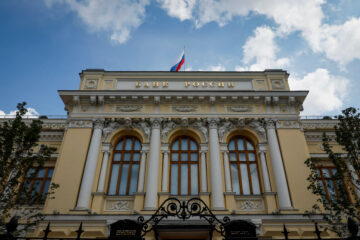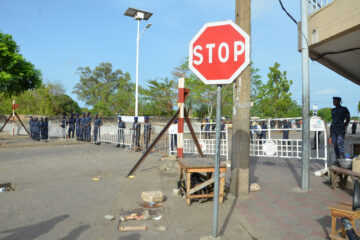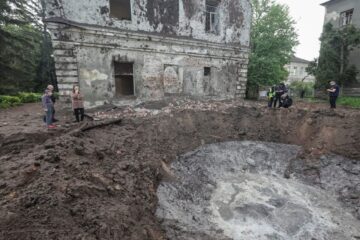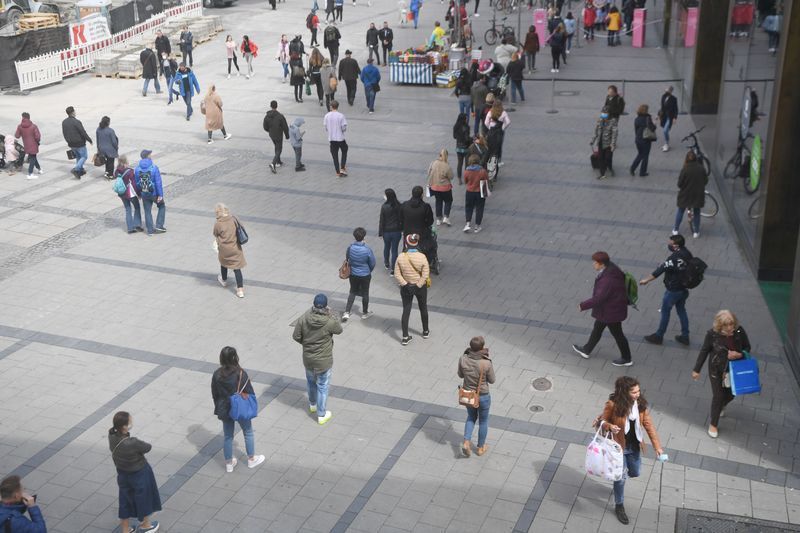Peru bars second-place presidential candidate
The second-place candidate in Peru\’s presidential election was disqualified Wednesday over procedural irregularities, upending the campaign and giving controversial frontrunner Keiko Fujimori a big boost with one month to go.
Peru\’s highest electoral court barred the candidacies of both centrist Julio Guzman — previously seen as likely to face Fujimori in a runoff — and millionaire former governor Cesar Acuna over violations of electoral law, said the elections board.
The court ruled that Guzman\’s party, All for Peru, "seriously and irreparably violated its own rules" in nominating its candidates for the elections, and that Acuna "engaged in prohibited conduct by giving out money" at a rally.
The ruling, which rejects both men\’s appeals of previous decisions, is a political windfall for Fujimori, the daughter of jailed ex-president Alberto Fujimori.
It leaves no strong rival standing between her and the presidential palace, where she acted as her father\’s first lady during his iron-clad rule.
The elections are a decisive moment for Peru, one of the fastest-growing economies in Latin America.
Current President Ollanta Humala, who took office in 2011, is barred from standing for re-election.
In the most recent opinion poll, Fujimori led the race with 34.6 percent of the vote and Guzman was in second place with 16.6 percent.
Acuna, who was once second in the polls, had slipped to seventh, with 3.6 percent.
The third-place candidate — who appears to take on the mantle of Fujimori\’s chief rival, at least for now — was economist Pedro Pablo Kuczynski, with 6.9 percent.
Wednesday\’s ruling leaves a total of 15 candidates in the crowded field. If no candidate wins more than half the vote on April 10, a runoff will be held in June.
Guzman, an economist who began the campaign as a long-shot outsider, upended the race when he surged unexpectedly into second place, capitalizing on widespread frustration with the political establishment.
He has vowed to call mass protests and take his case to the Inter-American Commission on Human Rights if electoral officials refuse to let him run.
"We are really stunned by this decision. We consider it totally unjust," his party\’s spokesman Daniel Mora said in a radio interview after the ruling.
The party is accused of failing to notify the authorities of changes to its internal statutes on nominating candidates. It scrambled to correct the problem after the allegations came to light, but was ruled by electoral officials to have violated the law.
Acuna, the other disqualified candidate, was found to have offered voters money at campaign events — which he defended as legal humanitarian donations.
Both barred candidates emphasized the confusion caused by Peru\’s adoption of a new electoral law in January, three months after the campaign began.
The candidates can still make an extraordinary appeal to the same court to reconsider its decision, but political analysts say it would be unlikely to succeed.
Fujimori also faces allegations of irregularities, including giving out prize money from an organization linked to her campaign. Electoral officials have yet to rule in her case.
The Fujimoris\’ political dynasty remains hugely divisive in Peru, where Alberto is serving a 25-year sentence for corruption and human rights violations during his decade-long presidency, which ended in 2000.
The elder Fujimori, who holds dual Peruvian and Japanese citizenship, was jailed in 2007 and convicted in 2009 for his role in killings by a death squad targeting supposed members of the Shining Path guerrilla group in the 1990s.
He has also been convicted of embezzlement and bribery.
SOURCE: AFP
[do_widget_area inner_adsbar]











